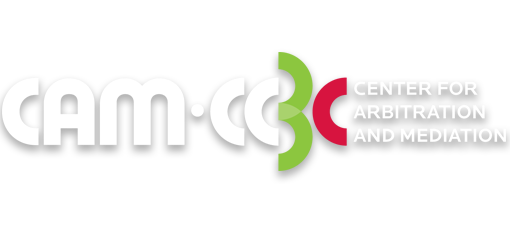CAM-CCBC’s secretariat model allows for service quality improvements
By Sérgio Siscaro
The advantages of adequate dispute resolution methods include the quicker pace of proceedings compared to going through the courts and the flexibility of the proceedings. However, an important additional benefit designed by CAM-CCBC is beginning to attract attention in the sector: managing cases through specialist secretariats.
“We realized some time ago that the secretariats provide a distinguished service due to the way the cases are managed. In this way, we can act more decisively, analyzing the details of each case with more precision – after all, the more knowledge of the subject you have, the greater your ability to contribute positively to the progress of that case”, says CAM-CCBC’s Secretariat Coordinator Sílvia Salatino. The case managementmodel, groundbreaking in Brazil, was adopted by the Center’s General Secretariat in 2018.
CAM currently has eight specialist secretariats, each composed of a case manager and an assistant case manager. The practice areas are corporate law (share purchase agreements, corporate dissolution, joint ventures and others), infrastructure and construction, real estate, intellectual property, commercial representation, energy, oil and gas, supply of goods and/or services and purchase and sale of goods.
The specific procedures in which the secretariats specialize, in turn, are mediation, emergency arbitration, arbitration according to the United Nations Commission on International Trade Law (Uncitral) Rules, arbitration involving direct (including special and regulatory agencies) and indirect (for government-controlled private companies) government entities, the Centre’s role as appointing authority, domain name disputes (CCRD-Committee of Disputes on Registration of Domain) and dispute boards.
Furthermore, the secretariats are prepared to handle procedures in any areas that can be resolved by arbitration, and in several languages – such as English and Spanish. “When the institution has someone who knows the subject, has studied the procedure and, sometimes, is academically prepared to deal with that subject, it is an important quality. The greater the interaction of case managers with that area, the higher the quality of the performance”, ponders case manager Maúra Guerra Polidoro.
The distribution model adopted also establishes that each new case will be analyzed and sent to the specific secretariat, which will be responsible for its conduction. If the matter is not dealt with by a specific secretariat, it will be referred to that with the fewest cases in progress at the time – thus promoting the careful administration of each case. “Due to high demand, there are procedures and sectors that have more than one secretariat. This is the case of corporate law, or the construction sector”, exemplifies Salatino.
Qualitative leap
Specialized service not only enables greater attention each cases details, taking into account the parties’ business sector or the type of proceeding, but also facilitates dialogue between the tribunal responsible for the mediation or arbitration and CAM-CCBC’s secretariat. “It is possible to establish a relationship of greater trust because the secretariat is represented by someone with expertise in that area. In fact, it is a new professional profile in the market, combining the skills of legal knowledge and organization with a knowledge more directed toward a certain branch of activity”, adds Secretariat Coordinator Cristiane Gertel.
This model was adopted by CAM-CCBC also due to the number of mediation and arbitration procedures that constantly arrive at the Center. At the end of 2019, the eight secretariats accounted for 330 ongoing cases – and in January 2020, six more were initiated, a higher number than that of the same month of the previous year.





